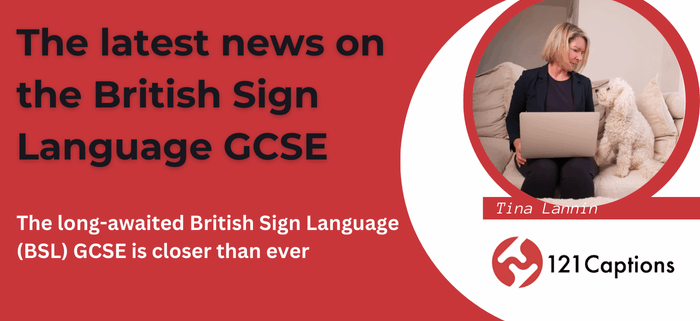The latest news on the British Sign Language GCSE
The long-awaited British Sign Language (BSL) GCSE is closer than ever, with significant steps being taken to make this qualification a reality. For those looking to improve accessibility and communication within the deaf community, the launch of a BSL GCSE is a momentous development.
What’s happening with the BSL GCSE?
On 30 April 2025, OFQUAL, the government body responsible for regulating qualifications, launched a consultation on the detailed rules that exam boards must follow in developing the BSL GCSE. This consultation aims to ensure that the qualification is accessible, relevant, and beneficial for all students who wish to learn BSL.
The consultation will cover several key aspects, including:
- Assessment language and accessibility
- Vocabulary and grammar
- Use of stimulus materials
- Non-exam assessment structures
The consultation will be open until 25 June 2025, and the results will be used to help shape the final qualification framework.
When will the BSL GCSE launch?
Ofqual is working towards confirming the final rules for the GCSE in BSL by autumn 2025. Once confirmed, exam boards will develop their syllabuses, which will then go through Ofqual’s accreditation process. This means that approved syllabuses are expected to be available from September 2025.
However, there are concerns about possible delays. The National Deaf Children’s Society (NDCS) has indicated that the BSL GCSE might not launch as planned in September 2025, citing the ongoing development of appropriate assessments by Ofqual. Despite these challenges, the qualification is still set to make its way into the educational system soon.
Why is this important?
The BSL GCSE represents a significant milestone in making the UK education system more inclusive. For Deaf and hard-of-hearing individuals, the introduction of a formal qualification will provide a structured way to learn and understand their native language while bridging the gap between the deaf and hearing communities.
Moreover, offering a GCSE in BSL will help raise awareness of the language, promote accessibility, and foster a culture of inclusion and understanding. For students, it means they will have the opportunity to study a rich and vibrant language that holds cultural and social importance.
What comes next?
While the full details of the GCSE qualification are still being finalised, there is no doubt that this development will have a positive impact on both the education sector and the wider community. Stay updated on the latest news regarding the BSL GCSE by keeping an eye on the official consultation page from Ofqual.
Want to get involved or learn more about BSL?
At 121 Captions, we are committed to accessibility and inclusion. If you’re interested in supporting BSL users or exploring live captioning and sign language interpretation for your events, get in touch with us today. We offer professional live captioning and sign language services for webinars, conferences, and training events, ensuring that your content is accessible to everyone.
Contact us today to find out how we can help you create more inclusive and accessible events with our BSL and captioning services.



Leave a Reply
Want to join the discussion?Feel free to contribute!